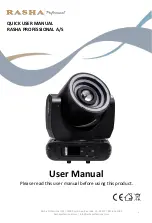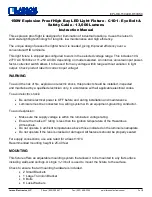
Basic Setup & Applications
lots of other instruments such as distorted guitar, compressing the life out of
your guitar will help you later in the mix. If the guitar is recorded as a solo
instrument or part of an acoustic ensemble, you should experiment with less
compression because you don't want to severely limit the natural acoustic
dynamic range of a good sounding guitar.
Start by using the setup described in the vocal section...
De-essing using an inserted equalizer into the sidechain.
A common annoyance when placing a vocal track in a mix is that as
you boost the higher frequencies of the track to 'breath life' into the vocal, all
of the 'SSS's of the dialogue or lyrics tend to become louder than the rest of
the track. A proven method of redusssing thissss problem is to
de-ess
the
track with 'spectral' compression.
Patching a de-esser together is illustrated in the patching diagrams
above. If you don't have an external equalizer, you can use a spare channel of
your mixer by sending the track to both the spare channel and the original
channel. Take the direct out of the spare channel and send it to the sidechain
input of the ACP-8 (signal on the ring of the tip-ring-sleeve connector). Once
patched, setup the compressor as a
limiter
as described above. How this
works is that when the
sidechain
has an inserted signal, the compressor
generates the gain reduction from the
sidechain return signal only
. Now, if
you boost those frequencies associated with sibilance (SSS), such as 2 kHz to
8 kHz, the compressor will apply the gain reduction more to the sibilance
because it is now 'seeing' more signal around the frequency of the sibilance.
You will need to adjust the frequency to locate your source of sibilance more
precisely. Parametric equalizers are most effective for this type of
compression but you can get by with most any equalizer.
Stereo Compressing/Limiting.
The linking feature of your ACP-22 will allow you to have up to four
stereo linked pairs of compressor/gates. If you read the 'section in chapter
two on the link function, this is easily achieved by pushing in the link button
creating a stereo pair. Channel one becomes the master and all functions on
channel two are inoperative.
To avoid confusion, it might be useful to turn the compression
ratio
to
1:1
on channel one with the link button pushed in (the right channel). This





































